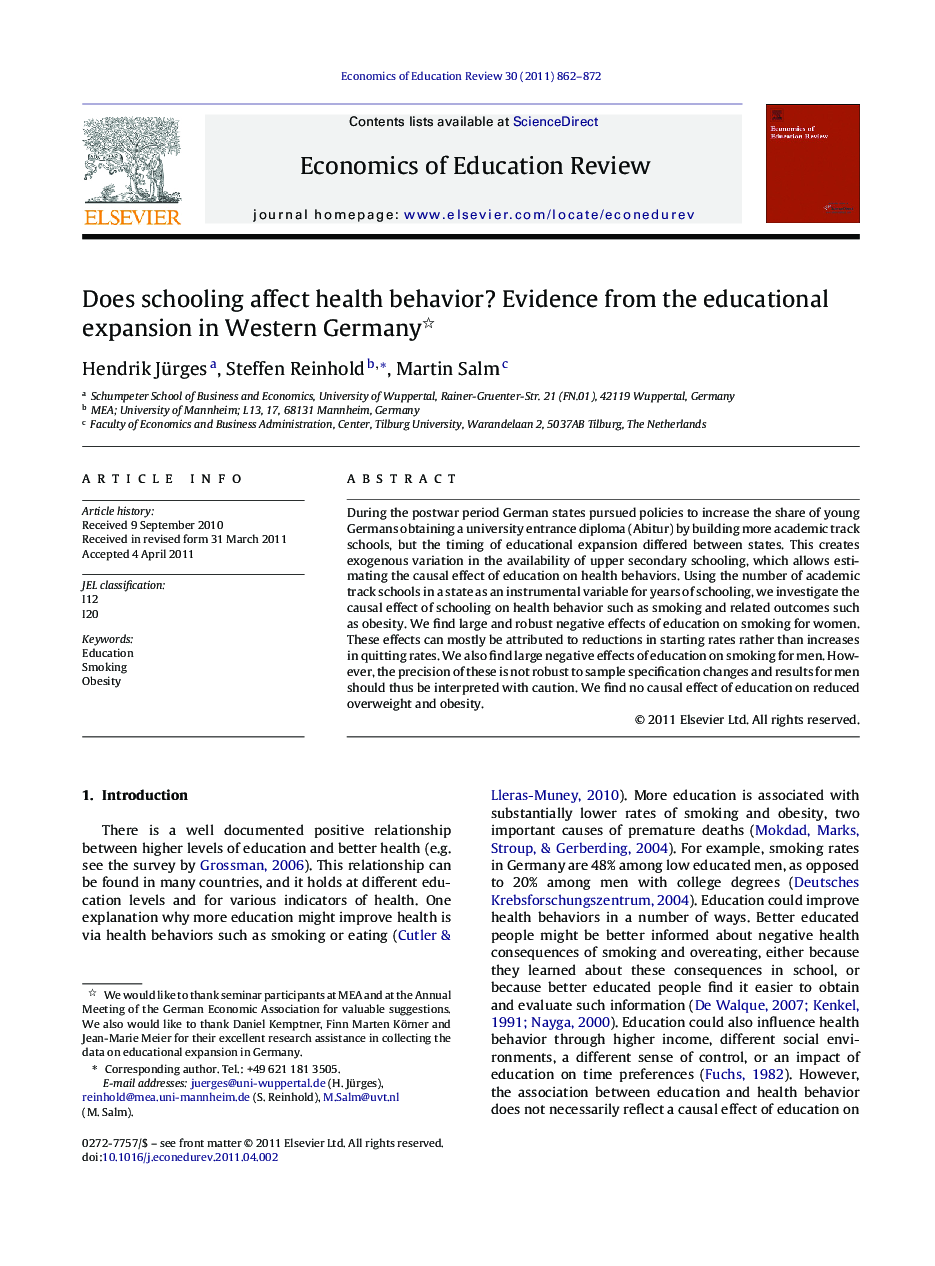| کد مقاله | کد نشریه | سال انتشار | مقاله انگلیسی | نسخه تمام متن |
|---|---|---|---|---|
| 354685 | 1434839 | 2011 | 11 صفحه PDF | دانلود رایگان |

During the postwar period German states pursued policies to increase the share of young Germans obtaining a university entrance diploma (Abitur) by building more academic track schools, but the timing of educational expansion differed between states. This creates exogenous variation in the availability of upper secondary schooling, which allows estimating the causal effect of education on health behaviors. Using the number of academic track schools in a state as an instrumental variable for years of schooling, we investigate the causal effect of schooling on health behavior such as smoking and related outcomes such as obesity. We find large and robust negative effects of education on smoking for women. These effects can mostly be attributed to reductions in starting rates rather than increases in quitting rates. We also find large negative effects of education on smoking for men. However, the precision of these is not robust to sample specification changes and results for men should thus be interpreted with caution. We find no causal effect of education on reduced overweight and obesity.
► Using the number of academic track schools as an instrument for education, we investigate the causal effect of schooling on health behaviors in Western Germany.
► Education reduces smoking among women by reducing the probability of starting to smoke.
► Education does not reduce body weight.
Journal: Economics of Education Review - Volume 30, Issue 5, October 2011, Pages 862–872